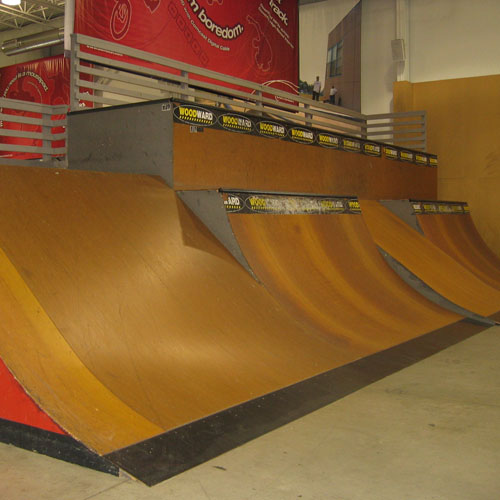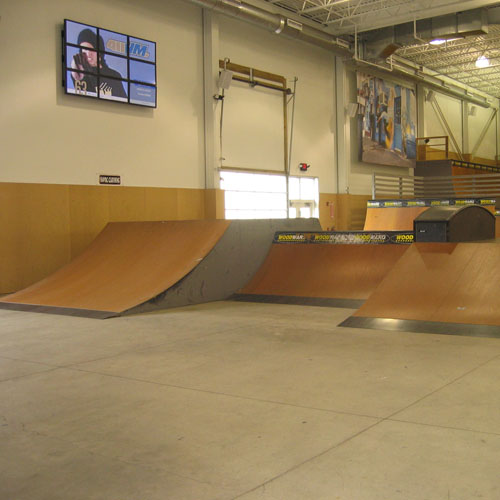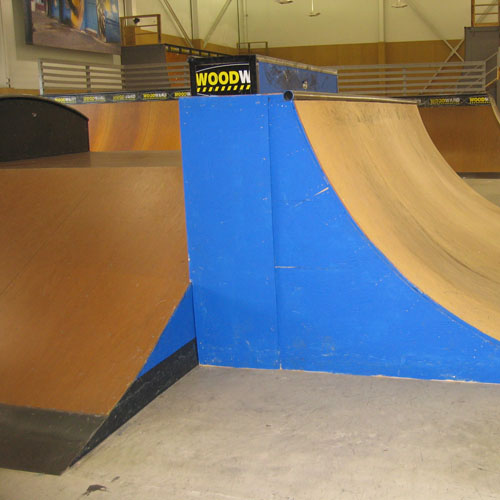Now that the new sport I proposed has a name (thanks to John Foss) and has come far enough along (thanks to excellent and insightful input and advice from John Foss, Kris Holm, Brian MacKenzie, Ben Plotkin-Swing and others) who all seem to support the idea… I felt it was time that this new sport deserves a new thread with a better, more appropriate title! If you have come across this thread and haven’t already read the previous thread regarding the development of this sport, you may want to check that out. The link to the previous thread is:
http://www.unicyclist.com/forums/showthread.php?threadid=37440&perpage=15&pagenumber=1
Now on to more about Rolling Trials…
This is what has been established so far for formally organized Rolling Trials competitions:
- You must compete in one of the following wheel size classes: 24”x3”, 26”, 28”/29”, 36” or Unlimited (any combination of any acceptable size).
- You’re allowed unlimited attempts.
- Hops are equivalent to dabs.
- Anything where the wheel can get air from its own momentum would not carry a dab (hop) penalty.
- If you clean (complete) the Section (or Line) with no dabs, you get a point.
- If you dab (hop), then you don’t make it and you don’t get a point.
- The person who cleans (completes) the most Sections/Lines gets the most points and wins.
These rules are essentially identical to Kris Holms’ unitrials rules, other than the wheel size classes and a hop being equal to a dab.
The winner of a formally organized Rolling Trials competition is awarded 3 Rating Points, 2nd place receives 2 Rating points, and 3rd place is awarded 1 Rating Point. Accumulate 10 points and you are a “Rated” Rolling Trials Competition rider/pilot.
Now here’s some more info on my ideas for Rolling Trials - both formally organized competitions (the basic rules for which were summarized above) and the worldwide, independent “Database” competition (which I describe below).
Rolling Trials tests riders’ ability to pedal their unicycle (24x3” wheel size or larger) through a variety of challenging terrain and over various obstacles. The sport was inspired by the ramps and obstacles typically found at skateparks and mountain bike parks. Rolling Trials competitors participating in the 24”x3”, 26” and 28”/29” classes are referred to as “riders,” while 36” class competitors are referred to as “pilots,” due to their speed capability, their ability to appear to “fly” up steep ramps and obstacles, and their ability to get air off jumps. Rolling Trials participants can compete (and get “rated”) in Rolling Trials in two different ways:
- By earning points from winning (or coming in 2nd or 3rd) at formally organized Rolling Trials competitions, or
- By earning points independently through submitting video proof and a sworn statement that you have cleaned (completed) an approved Section/Line with a difficulty rating of 6 or higher.
Rolling Trials Worldwide, Independent “Database” Competition
The competition I’m calling the “Database Competition” right now (for lack of a better term until John Foss comes up with one :D), is essentially a worldwide, independent competition that enables riders to submit proposed Sections to the “Database” (an Internet-based database that stores info and photos of Sections/Lines worldwide, as well as videos of riders that have cleaned approved Sections/Lines), and keeps a running tab on how many riders have attempted each approved Section/Line, cleaned each approved Section/Line (and if cleaned, in how many attempts), and the rating of the riders that successfully cleaned the Sections/Lines. This database will store all relevant information about the Section/Line (where it’s located, its current difficulty rating, etc.), the riders that cleaned it (their age, rating, location, etc.) and will establish the worldwide “Database” champion. It is possible that the Rolling Trials champion (points leader) for organized competitions turns out to be the same as the worldwide Database champion, but that won’t necessarily be the case.
A Section can either be an actual section of an MTB course or a stand alone obstacle that can be found in the existing landscape or one that has been built specifically for Rolling Trials. The line a rider/pilot would ride to complete a Section is usually:
- Easily discernable,
- Ridden once in a single direction, from the “entry point ” to the “exit point,” and
- Ridden frontward
Sections usually consists of MTB and/or BMX style obstacles, such as: berms, teeter-totters, a wide variety of ramps and elevated platforms, tabletop jumps, box jumps, drop-offs, skinnnies, elevated skinnies, log piles, rock gardens, bridges and swinging bridges. A Section can consist of a single obstacle or it can consist of several obstacles laid out in sequence.
“Lines” are typically found at skateparks, though they could also be found at MTB parks, in the existing landscape, or can be constructed specifically for Rolling Trials. A “Line” is the path (also referred to as a “line” – using a lowercase “l” for line, though) that a rider/pilot must ride over an obstacle in order to complete the Line (uppercase “L”) successfully and win the points. Lines include ramps, large jumps (quarter-pipe style jumps, launch jumps, tabletop jumps, and jumps with spines). A single obstacle can have several Lines, thus a rider/pilot may be able to successfully complete one Line of an obstacle, but be unable to complete another Line on that same obstacle. The line a rider/pilot would ride to complete a Line:
- May often not be immediately obvious just from looking at a picture of the obstacle – a picture of the obstacle with an arrow drawn depicting the Line is necessary.
- May require riding the obstacle in two directions, rather than a single direction. Riding up a ramp beyond the 10 ft. point (a line would be drawn across the ramp to mark the 10 ft. point in a competition) and then doing a 180 spin and riding back down, for example, could be one particular Line on that obstacle.
- May require backward riding (such as riding to the top of a straight ramp and coming to a momentary stall and then riding backward down the ramp (no sideward directional change). For Lines requiring the rider/pilot to change the direction of riding, the arrow will indicate the direction of riding (strictly frontward, frontward/backward… or even possibly frontward/backward/frontward – such as a line that required the rider/pilot to ride frontward up to the top of the ramp, come to a momentary stall, ride backward partially back down the ramp, and then do a 180 spin back to frontward in order to ride the rest of the way down the ramp frontward).
[I](continues below with next post)
[/I]



